
Guy Branum is a comedian, writer, producer, and actor. His book My Life as a Goddess: A Memoir through (Un)Popular Culture discusses hard topics such as fat-phobia and homophobia with smart, unapologetic humor. He brings that same energy to Bros, where he plays Henry, the fun-loving friend to Billy Eichner’s character Bobby.
Guy has been working in Hollywood for over two decades. He has a lot to say about both film culture and the gay scene. Ultimately, he is a man full of love who wants to see his community grow and flourish. He sat down with Queerty prior to the film’s release to talk through his thoughts.
QUEERTY: I want to start off by talking about Bros and how you got involved with the project. Can you tell me a little bit about the history there?
BRANUM: I had known Billy for years. I worked on Billy on the Street, and he asked me to do the table read for the screenplay at the end of 2019. After that I heard that other people auditioned for the movie, and I asked, “Can I get an audition?” And they were like “No. They saw you at the table read.” And I sort of thought that they weren’t interested in me. And they told me that they were going to be shooting it in the spring of 2020. And then Covid happened, and I again assumed that there was no possible way I would still have the role. And when it came back, they just called me a couple of weeks beforehand and told me that the movie was going again. They asked me if I could go to new Jersey, and they also asked me if I could be the onset punch up person, so I was also a co-producer on the movie. So, I was there every day, helping out with additional jokes, but more than anything. However, much of my job became explaining gay things to Nick Stoller when Billy wasn’t around.
How about we take this to the next level?
Our newsletter is like a refreshing cocktail (or mocktail) of LGBTQ+ entertainment and pop culture, served up with a side of eye-candy.
I think that they would have been out of their minds to overlook you in this project.
Yeah, but let’s be honest. People like me—as fat as me aren’t really cast in roles in movies like these unless they’re obstacles or object or an impediment to someone else’s journey. Since I knew that this was a role that Billy had based on his best friend and was supposed to represent being happy while not being in a relationship. I think that this character with a sexuality that went out and had fun—you know; it’s very easy to understand why someone wouldn’t cast me. I really appreciated the fact that they had this vision for the character, and that they and the studio were okay with it.
View this post on Instagram
There’s a lot of fat shame and stigma in American culture, and I think that’s often magnified in gay circles. These are topics that you talk about in My Life as a Goddess, and that you touch on in a lot of your work. How does this topic of fat-stigma—or fat people not being attractive—come up in Bros? And how does Bros thwart that?
I think that fatness and gay masculinity intersect in a very interesting way. For such a long time gay men have had to project that we are fine so people don’t think that we are sad and pathetic. Our roles in TV are to be fun. You must be handsome and fun and rich and well-dressed to project that you are not this kind of tragic story. And that’s great for people who can project that kind of image, but not everybody can. I think that one of the things that Bros does is just let people with different body shapes and sizes be part of the texture. The film shows henry being at home in a club just like I am at home in a club and have a good time.
I also think that the idea of “velvet rage”, of gay guys having coping mechanisms that we have used to survive, but also underneath that, a rage against a world that wouldn’t accept us for who we are. That’s something that many of the characters, particularly the white-cis characters in Bros are having to confront. They must figure out how their coping mechanisms are hurting themselves and hurting their community around them.
RELATED: Billy Eichner and Luke Macfarlane on the ‘Bros’ scene they were most nervous about
Right, and often these coping mechanisms lead to scapegoating. I also want to discuss how Bros is a story about queer love and relationships. What does it feel like to be a part of a story sharing the nuances of modern, queer relationships to a larger, potentially cis-hetero audience?
I think the beauty of this story comes from Nick Stoller and Billy Eichner coming from very different places when it comes to love and romance, an learning from each other and listening to each other, and really coming to a story that embraces old-school rom-com ideas of love but also understands that heteronormative structures have not had a place for us—it is a journey to understand how we fit into them. And I love that it is a movie that has different shapes and sizes of relationships and families. You have Monica Raymond and Guillermo Diaz in a very heteronormative family, but being played by queer people, that you have a throuple, that you have people that are having hook-ups that aren’t bad things—that aren’t a sign of sadness—but are just things that are a part of their lives. And I really love that Henry at the end is dancing on his own. That was actually a conversation that came up. The question of at the dancing scene at the end, if he should be dancing with someone he met at the club or on his own and I was like, “He’s fine dancing on his own.” He is somebody who gets what he needs out of the world.
You put it very well when you said that seeing a fat person happy and fulfilled on screen is not something we see. I would go as far as to say that it is almost radical to see a fat person on screen not give into shame and stigma and to be desirable—sexy even. Can you talk a little bit about that?
The only thing fat people are supposed to do on screen is to be sad or be journeying towards not being fat. I like that this is a movie that doesn’t say that gay men must participate in the idea of a happily ever after—have to participate in monogamy. That it ends with Bobby saying to Aaron, “can we date for three months and reevaluate?” is radical; it is bold. But it’s more reflective of what our lives are. Both as a gay man and as a fat man I am tired of having to reassure people that I am fine. Because I am fine. It shouldn’t be work to explain that. I like that Henry is comfortable in his own space. He’s always working from a position of authority. He’s wrong about some things—he’s wrong about Aaron, but I like that.
Just one more thing, Billy saying in the song “love is not love” is such a radical idea. It’s saying that our love is different. It was radical even to us in the cast. But I think there’s something so lovely about saying that my life and my body don’t have to look the way you expect happiness to look for me to be happy.
Yeah. Something that you said made me think that it’s often more taxing to explain to people that “I am okay this way,” than it is to be it, whatever that “it” happens to be. I feel that often, socially, we are pressured to feel a weight in not fitting the social convention.
So frequently people also want you to imagine yourself out of it. The thing is, it’s not. It takes people showing you stuff and changing the way everybody is thinking about it. The problem is not so much in my head as it is in other people’s heads. I love that this is a movie about joy; it is about queer joy. It talks about what’s hard, but it focuses on what’s great.
However much I want to talk about how gay men have trouble with fat people and things like that, gay spaces are spaces where I am most comfortable. It is a community that is loving and takes care of each other. And so often, when gay men are shortsighted or stingy, it comes back to what they fear about themselves. I like that this is a movie that’s able to accept that there is trauma in the level of oppression and erasure that we had growing up and sees it from the perspective of people who did not have these rights and visibility for most of their lives. Now, living in a world where we have more visibility and more rights, and trying to let go of the damage that we have from earlier in our lives, we can find joy and happiness.
RELATED: Guy Branum criticizes Brendan Fraser’s film ‘The Whale,’ says the source material is “problematic”
I feel that on screen we are seeing more diversity in lives and people. What is your history in seeing, to use your phrasing, the texture of people that is more reflective of reality?
One of the lovely things about this is as somebody that works as a writer and producer on television, I get to see how the sausage is made. I very much understand how a writers’ room writes a character, and hands it off to a casting director who is trying to satisfy the presumed vision of this writers’ room and a director, and so on. In this process, people think that their job is to not get fired instead of reflecting the world as it exists. And frequently they go to the first possible thought: they go to actors they have used before—they go to people that are not going to challenge anybody’s notion of how things work. It takes someone saying, “What if this person was part of your texture and part of your world.” It takes people opening their minds to understand that it doesn’t require that the script say “a fat person” or “a non-binary person” for that kind of person to play that part.
You look back at what television was ten or fifteen years ago. How white Friends is, is uncomfortable and shocking. When you see shows that have casts that don’t look like the world that you live in, and we have all been brainwashed into thinking that London 1795 is all white people, or that Manhattan 1995 is a place that is entirely composed of young thin white people. When you’re younger you just accept that as true, but part of being a grown-up is accepting that, that was never true. It was a lie when we were doing it, and now fixing it is not radical or ridiculous—it’s just saying, there are interesting people all around us who don’t fit into this very narrow definition of what “normal” is.
In many ways, you are a voice for all of us who don’t fit into the mold of conventional queer attractiveness. How do you manifest that energy? What motivates you to keep advocating for your own voice?
It’s very hard, because there is this expectation that people imagine themselves out of their own, supposed, oppression. We tell stories that emphasize this point: that the problem isn’t in the world, it’s in your own head. My response to that is simply, “No.” One thing I can control is my own head. Sometimes it’s taxing, sometimes it’s draining, and sometimes it’s easy to see yourself in the way that the world wants you to see yourself.
But remembering A: that is the world trying to keep you weak so that the people in power can continue to have good lives, and B: what else am I doing? I want to be in the world. The world would tell me that there is no place for me in gay clubs, etc. Sometimes it’s a struggle and sometimes it’s a fight. The danger of being someone that gets to be on TV and gets to have a book is that it can convince other people that you are “fixed,” and that it can convince you that you should be presenting to people that you are “fixed.” I’m not fixed.
I haven’t solved all these problems, and I want everyone to have access to my voice, but I understand that there are limitations to my voice. I’m a white, cis guy. I don’t speak for everyone. But I think that more people who are outside of the bounds of people who get to talk, talking is a good thing. And so are these voices being in conversation and learning from each other. Everyone that is LGBTQ+, at some point in time, had to say I am going to work outside the boundaries of what is acceptable. I think that gives us all a power and a charge to approach this world with boldness. It’s why I love this community.
RELATED: Billy Eichner responds to “dismal” box office for ‘Bros’ on its opening weekend



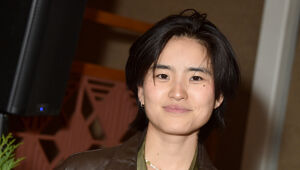
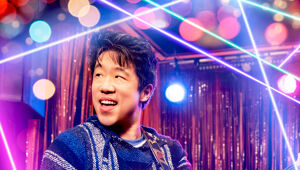
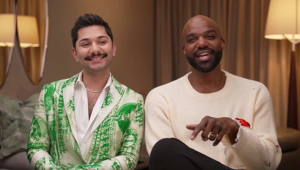

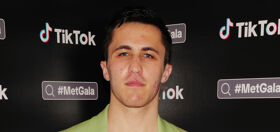
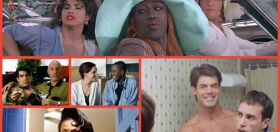
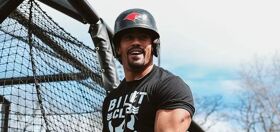
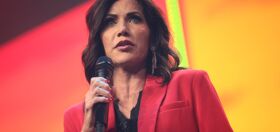
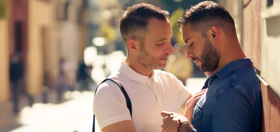

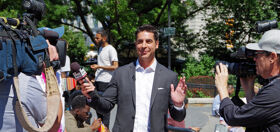
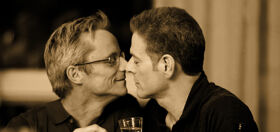
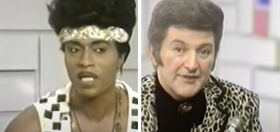
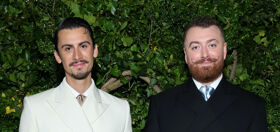
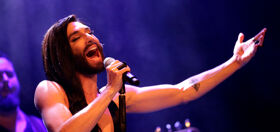

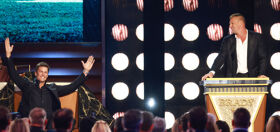
dbmcvey
He’s so great! So funny and so smart. In a better world he would be a huge star.
BLAKENOW
This guy is obnoxious, of course that ” Like OMG its so funny ” movie flopped, you have boring gay actors that are always in everything along with the abrasive sniveling lead and only women that watch Hallmark will bother to watch it. Judd Apatow hasn’t had a hit is a long time too.
dbmcvey
Bros is a great movie. You obviously haven’t seen it. And boy are you a dick.
LumpyPillows
Yeah, really doubt you saw the movie. Shame, it seems you could use a laugh.
Cam
What a shock, the same old right wing troll with multiple screenames that always defends bigots doesn’t like a movie with a gay plotline.
ScottOnEarth
This conversation is dizzying with the constant labeling and siloing of people. For a community that claims to be so opposed to labels, the LGBTQ+ community seems to absolutely live by them (heteronormative, cis-hetero, etc.), constantly dividing and defining people through external characteristics. How about we’re all just f-ing people and “Bros” just isn’t a very good movie, in spite of its contrived attempt at embodying the totality of PC culture.
Ronbo
Yes, we risked it all and fought and won legal equality AS A GROUP. Billy was part of that being that he is so gay he can’t even think straight. Before cam and abfab and the haters attack me for that, it’s what Billy actually said – and many of us understand the sentiment. Billy was part of our evolution.
This first wave of gays raised under equality didn’t learn the lessons of working toghether to make advances; many prefer to simply complain and unfortunately become entrenched in harmful identity politics. Since we have so many identities and encompass every walk of life, identity politics only divides us and our message. Stop being a part of the negative PC borg and express yourself with compassion and acceptance for all – even those with whom we disagree. THAT is true goal that moves us forward.
dbmcvey
You’re wrong. Bros is a really good movie. It’s really funny and really effective. You haven’t seen it so you don’t know.
abfab
The Wave Of Gays: The World According To Ronbo
Cam
@Ronbo I LOVE it when the right wing troll is so obsessed with being called out that it has to talk about me before putting out whatever attack on out of the closet LGBTQ people it can. Also, trying to rehab your other screename (abfab) by pretending it also attacks you is adorable.
As always, your trolling is sad and weak.
As for @ScottOnEarth, since when has the LGBTQ community EVER been against labels? The “No labels” thing was a recent thing that seems to have been around for a bit and faded. Lesbian, Gay, Bi, Trans, Queer, Bi, Asexaul, 2 Spirit, etc… just curious why you would invent a false premise so you could then argue against it.
Oh, also, since you claim to have seen Bros, by all means, feel free to list the parts you didn’t like. (No, you didn’t see it.)
Ronbo
How did I know that abfab and Cam would come around and spread hate and division? Because that is what they do.
Now, Cam, make more false claims. It might explain why you blame others for sockpuppetry when you and abfab share the same hatred for all that is different than your opinion. Always the same opinion. Always here together. Always with hate.
Could it be that you are blaiming others to conceal your sockpuppetry? It’s what angry hateful kids do.
Ronbo
Cam – Since when do “right wing trolls” ask for compassion and acceptance in society? They don’t. You appear to be confused or just high on pure hate and deception.
“Stop being a part of the negative PC borg and express yourself with compassion and acceptance for all – even those with whom we disagree. THAT is true goal that moves us forward.” That is never on your agenda – it’s should be.
inbama
This week 50 million people watched “Dahmer” on Netflix – which means Jeffrey Dahmer is way more popular than Billy Eichner!
(I myself am on the third episode of AMC’s “Interview with a Vampire” which, so far, is the hottest gay horror since “True Blood.”)
dbmcvey
So, you’re stoking up a serial killer. You must be so proud.
Cam
And the same old right wing troll comes in with MULTIPLE screenames as always, to attack anything done by an out of the closet LGBTQ person.
Laughing Reader
I really wanted to like Bros. But I didn’t. Mr. Eichmer is obnoxious and annoying. I didn’t see my gay life represented at all. I did enjoy Luke McFarlane though. I really wanted the movie to be better than it was.